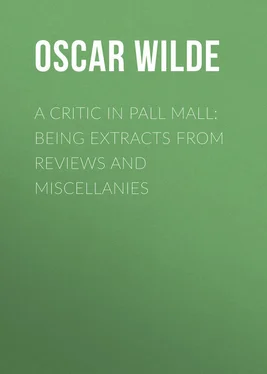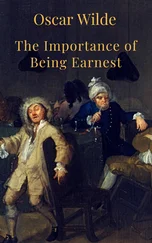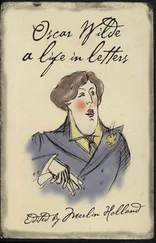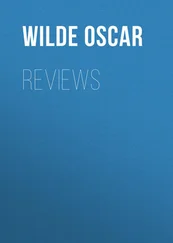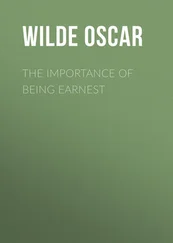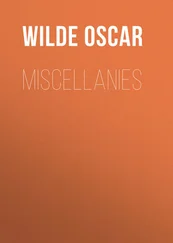Oscar Wilde - A Critic in Pall Mall - Being Extracts from Reviews and Miscellanies
Здесь есть возможность читать онлайн «Oscar Wilde - A Critic in Pall Mall - Being Extracts from Reviews and Miscellanies» — ознакомительный отрывок электронной книги совершенно бесплатно, а после прочтения отрывка купить полную версию. В некоторых случаях можно слушать аудио, скачать через торрент в формате fb2 и присутствует краткое содержание. Жанр: foreign_prose, на английском языке. Описание произведения, (предисловие) а так же отзывы посетителей доступны на портале библиотеки ЛибКат.
- Название:A Critic in Pall Mall: Being Extracts from Reviews and Miscellanies
- Автор:
- Жанр:
- Год:неизвестен
- ISBN:нет данных
- Рейтинг книги:5 / 5. Голосов: 1
-
Избранное:Добавить в избранное
- Отзывы:
-
Ваша оценка:
- 100
- 1
- 2
- 3
- 4
- 5
A Critic in Pall Mall: Being Extracts from Reviews and Miscellanies: краткое содержание, описание и аннотация
Предлагаем к чтению аннотацию, описание, краткое содержание или предисловие (зависит от того, что написал сам автор книги «A Critic in Pall Mall: Being Extracts from Reviews and Miscellanies»). Если вы не нашли необходимую информацию о книге — напишите в комментариях, мы постараемся отыскать её.
A Critic in Pall Mall: Being Extracts from Reviews and Miscellanies — читать онлайн ознакомительный отрывок
Ниже представлен текст книги, разбитый по страницам. Система сохранения места последней прочитанной страницы, позволяет с удобством читать онлайн бесплатно книгу «A Critic in Pall Mall: Being Extracts from Reviews and Miscellanies», без необходимости каждый раз заново искать на чём Вы остановились. Поставьте закладку, и сможете в любой момент перейти на страницу, на которой закончили чтение.
Интервал:
Закладка:
Some of the Folk-poems in this book have all the lightness and loveliness of lyrics, all of them have that sweet simplicity of pure song by which mirth finds its own melody and mourning its own music, and even where there are conceits of thought and expression they are conceits born of fancy not of affectation. Herrick himself might have envied that wonderful love-song of Provence:
If thou wilt be the falling dew
And fall on me alway,
Then I will be the white, white rose
On yonder thorny spray.
If thou wilt be the white, white rose
On yonder thorny spray,
Then I will be the honey-bee
And kiss thee all the day.
If thou wilt be the honey-bee
And kiss me all the day,
Then I will be in yonder heaven
The star of brightest ray.
If thou wilt be in yonder heaven
The star of brightest ray,
Then I will be the dawn, and we
Shall meet at break of day.
How charming also is this lullaby by which the Corsican mother sings her babe to sleep!
Gold and pearls my vessel lade,
Silk and cloth the cargo be,
All the sails are of brocade
Coming from beyond the sea;
And the helm of finest gold,
Made a wonder to behold.
Fast awhile in slumber lie;
Sleep, my child, and hushaby.
After you were born full soon,
You were christened all aright;
Godmother she was the moon,
Godfather the sun so bright.
All the stars in heaven told
Wore their necklaces of gold.
Fast awhile in slumber lie;
Sleep, my child, and hushaby.
Or this from Roumania:
Sleep, my daughter, sleep an hour;
Mother’s darling gilliflower.
Mother rocks thee, standing near,
She will wash thee in the clear
Waters that from fountains run,
To protect thee from the sun.
Sleep, my darling, sleep an hour,
Grow thou as the gilliflower.
As a tear-drop be thou white,
As a willow tall and slight;
Gentle as the ring-doves are,
And be lovely as a star!
We hardly know what poems are sung to English babies, but we hope they are as beautiful as these two. Blake might have written them.
The Countess Martinengo has certainly given us a most fascinating book. In a volume of moderate dimensions, not too long to be tiresome nor too brief to be disappointing, she has collected together the best examples of modern Folk-songs, and with her as a guide the lazy reader lounging in his armchair may wander from the melancholy pine-forests of the North to Sicily’s orange-groves and the pomegranate gardens of Armenia, and listen to the singing of those to whom poetry is a passion, not a profession, and whose art, coming from inspiration and not from schools, if it has the limitations, at least has also the loveliness of its origin, and is one with blowing grasses and the flowers of the field.
Essays in the Study of Folk-Songs . By the Countess Evelyn Martinengo Césaresco. (Redway.)
THE CENCI
The production of The Cenci last week at the Grand Theatre, Islington, may be said to have been an era in the literary history of this century, and the Shelley Society deserves the highest praise and warmest thanks of all for having given us an opportunity of seeing Shelley’s play under the conditions he himself desired for it. For The Cenci was written absolutely with a view to theatric presentation, and had Shelley’s own wishes been carried out it would have been produced during his lifetime at Covent Garden, with Edmund Kean and Miss O’Neill in the principal parts. In working out his conception, Shelley had studied very carefully the æsthetics of dramatic art. He saw that the essence of the drama is disinterested presentation, and that the characters must not be merely mouthpieces for splendid poetry but must be living subjects for terror and for pity. ‘I have endeavoured,’ he says, ‘as nearly as possible to represent the characters as they probably were, and have sought to avoid the error of making them actuated by my own conception of right or wrong, false or true: thus under a thin veil converting names and actions of the sixteenth century into cold impersonations of my own mind…
‘I have avoided with great care the introduction of what is commonly called mere poetry, and I imagine there will scarcely be found a detached simile or a single isolated description, unless Beatrice’s description of the chasm appointed for her father’s murder should be judged to be of that nature.’
He recognized that a dramatist must be allowed far greater freedom of expression than what is conceded to a poet. ‘In a dramatic composition,’ to use his own words, ‘the imagery and the passion should interpenetrate one another, the former being reserved simply for the full development and illustration of the latter. Imagination is as the immortal God which should assume flesh for the redemption of mortal passion. It is thus that the most remote and the most familiar imagery may alike be fit for dramatic purposes when employed in the illustration of strong feeling, which raises what is low, and levels to the apprehension that which is lofty, casting over all the shadow of its own greatness. In other respects I have written more carelessly, that is, without an over-fastidious and learned choice of words. In this respect I entirely agree with those modern critics who assert that in order to move men to true sympathy we must use the familiar language of men.’
He knew that if the dramatist is to teach at all it must be by example, not by precept.
‘The highest moral purpose,’ he remarks, ‘aimed at in the highest species of the drama, is the teaching the human heart, through its sympathies and antipathies, the knowledge of itself; in proportion to the possession of which knowledge every human being is wise, just, sincere, tolerant and kind. If dogmas can do more it is well: but a drama is no fit place for the enforcement of them.’ He fully realizes that it is by a conflict between our artistic sympathies and our moral judgment that the greatest dramatic effects are produced. ‘It is in the restless and anatomizing casuistry with which men seek the justification of Beatrice, yet feel that she has done what needs justification; it is in the superstitious horror with which they contemplate alike her wrongs and their revenge, that the dramatic character of what she did and suffered consists.’
In fact no one has more clearly understood than Shelley the mission of the dramatist and the meaning of the drama.
BALZAC IN ENGLISH
Many years ago, in a number of All the Year Round , Charles Dickens complained that Balzac was very little read in England, and although since then the public has become more familiar with the great masterpieces of French fiction, still it may be doubted whether the Comédie Humaine is at all appreciated or understood by the general run of novel readers. It is really the greatest monument that literature has produced in our century, and M. Taine hardly exaggerates when he says that, after Shakespeare, Balzac is our most important magazine of documents on human nature. Balzac’s aim, in fact, was to do for humanity what Buffon had done for the animal creation. As the naturalist studied lions and tigers, so the novelist studied men and women. Yet he was no mere reporter. Photography and procès-verbal were not the essentials of his method. Observation gave him the facts of life, but his genius converted facts into truths, and truths into truth. He was, in a word, a marvellous combination of the artistic temperament with the scientific spirit. The latter he bequeathed to his disciples; the former was entirely his own. The distinction between such a book as M. Zola’s L’Assommoir and such a book as Balzac’s Illusions Perdues is the distinction between unimaginative realism and imaginative reality. ‘All Balzac’s characters,’ said Baudelaire, ‘are gifted with the same ardour of life that animated himself. All his fictions are as deeply coloured as dreams. Every mind is a weapon loaded to the muzzle with will. The very scullions have genius.’ He was, of course, accused of being immoral. Few writers who deal directly with life escape that charge. His answer to the accusation was characteristic and conclusive. ‘Whoever contributes his stone to the edifice of ideas,’ he wrote, ‘whoever proclaims an abuse, whoever sets his mark upon an evil to be abolished, always passes for immoral. If you are true in your portraits, if, by dint of daily and nightly toil, you succeed in writing the most difficult language in the world, the word immoral is thrown in your face.’ The morals of the personages of the Comédie Humaine are simply the morals of the world around us. They are part of the artist’s subject-matter; they are not part of his method. If there be any need of censure it is to life, not to literature, that it should be given. Balzac, besides, is essentially universal. He sees life from every point of view. He has no preferences and no prejudices. He does not try to prove anything. He feels that the spectacle of life contains its own secret. ‘Il crée un monde et se tait.’
Читать дальшеИнтервал:
Закладка:
Похожие книги на «A Critic in Pall Mall: Being Extracts from Reviews and Miscellanies»
Представляем Вашему вниманию похожие книги на «A Critic in Pall Mall: Being Extracts from Reviews and Miscellanies» списком для выбора. Мы отобрали схожую по названию и смыслу литературу в надежде предоставить читателям больше вариантов отыскать новые, интересные, ещё непрочитанные произведения.
Обсуждение, отзывы о книге «A Critic in Pall Mall: Being Extracts from Reviews and Miscellanies» и просто собственные мнения читателей. Оставьте ваши комментарии, напишите, что Вы думаете о произведении, его смысле или главных героях. Укажите что конкретно понравилось, а что нет, и почему Вы так считаете.
